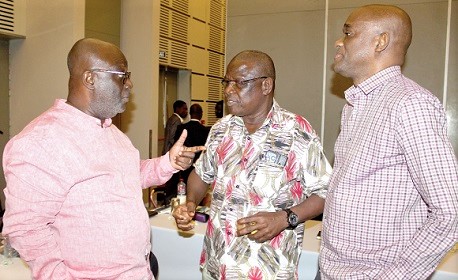Stakeholders in the cassava value chain have called for deliberate policies of value addition and financing to industrialise the sector.
They said such a measure would not only lead to job creation and livelihood improvement but also reduce the importation of cassava products, adding that the sector had the potential to contribute to the accelerated development of the country.
The country ranks among the top five cassava producers in Africa, with at least 18 varieties of improved cassava produced in commercial quantities.
The stakeholders, who included farmers, processors, transporters, civil society organisations, buyers, consumers and financial institutions, were speaking at the maiden cassava multi-stakeholder forum in Accra yesterday.
It was organised by the Ghana Incentive-based Risk-sharing System for Agriculture Lending (GIRSAL), in partnership with the Development Bank, Ghana (DBG) and the Ghana Industrial Cassava Stakeholder Platform (GICSP).
Objectives
Among the objectives of the forum was to identify opportunities and key challenges facing the national agenda of industrialising the cassava ecosystem and the key interventions that would support solutions for an effective and efficient value chain pivoted around major, small and medium processors.
The participants also discussed issues of food security, employment creation, reduction in importation and the provision of a channel for consistent financing of specific products.
Potential
The Chairman of the GICSP, Chris Quarshie, said the high starch in cassava root was an important characteristic that made the crop a potential industrial cash crop.
He said ethanol could be derived from cassava starch, while food-grade starch could also be used for industrial purposes.
According to him, the local ethanol consuming industry used imported raw materials for production due to inadequate supply of ethanol from local starch factories because of the lack of cassava varieties that could yield more starch to feed the factories for sustainable production.
"We need to scale up the cultivation of the right variety for export and import substitution," he said.
Citing data from the Ministry of Food and Agriculture, Mr Quarshie said the country produced 18 million tonnes of cassava annually, consumed about eight million tonnes and recorded 10 million tonnes of annual surplus which "is un-uprooted and left in the ground to rot”.
"We have cassava but we need to get the variety which is high in starch, high yielding and will be of interest to industries," he said.
He said cassava had low risk profile and matured between 20 and 24 months, depending on the variety, and called for proactive policies, financing and the building of the capacity of players in the industry.
The Chief Executive Officer of Bankyekrom Limited, Sarpei Kwadey, said "every part of the country can grow cassava".
According to him, a high percentage of cultivated cassava remained un-uprooted, and that only 0.5 per cent was processed while 70 per cent was produced by smallholder farmers.
"We need huge tracts of land to cultivate cassava on a large scale, as well as skilled labour, mechanisation and planting materials," he added.
Financing
The Chief Executive Officer of DBG, Kwamena Duker, said the bank was focused on four key sectors - agribusiness, manufacturing, ICT and high value services.
He said cassava was the most important root crop in the country and, therefore, called for joint efforts to address the challenges faced by the cassava sector through collaboration of various stakeholders.

